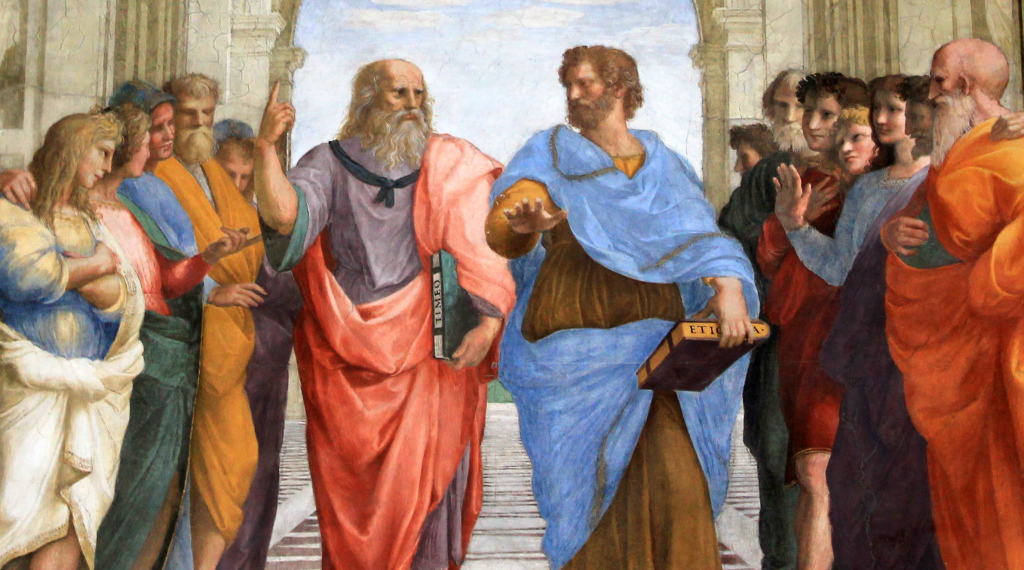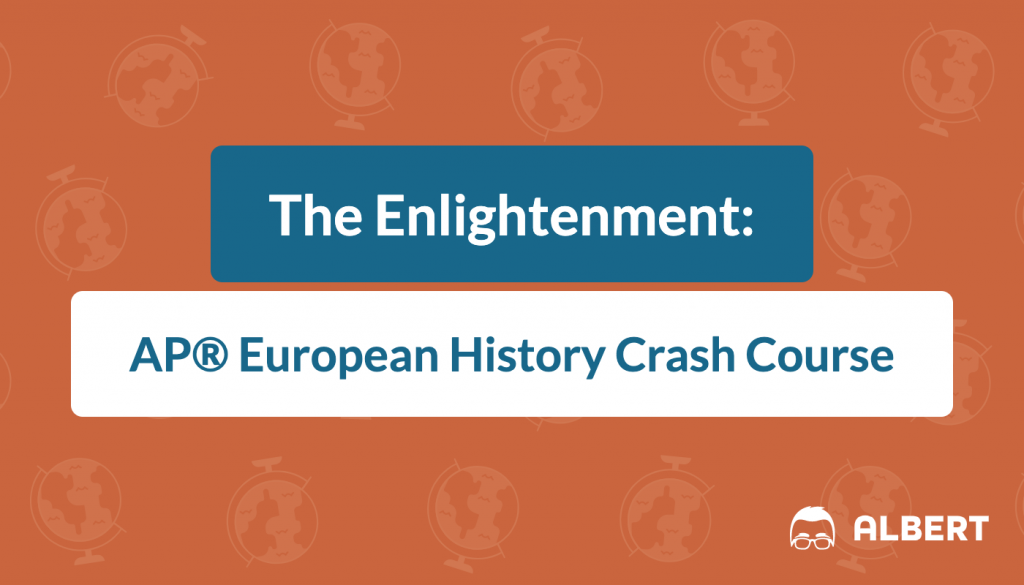Note: This article was released prior to the 2015-2016 revision to the AP® European History exam. In order to see what is still in the Course and Exam Description, explore the course framework here.
The Enlightenment, otherwise known as the Age of Enlightenment or the Age of Reason, took place from the 1650s through the 1780s. The Age of Enlightenment is characterized by social, economic, and political advancement of thought through reason, science, and an increase in literate skill. This AP® European History crash course on The Enlightenment will cover the core concept, explore the purpose of this age in European history, and review eventualities in which you might encounter The Enlightenment on the AP® Euro test. Continue reading for an AP® European History review of the Enlightenment!
The Enlightenment: what is it?

Perhaps the best way to unpack and examine the information presented here about this time period is to understand the great German Philosopher Immanuel Kant’s interpretation of The Enlightenment: this time period was about obtaining the freedom to exercise your own intelligence. With that in mind, read through this AP® European History crash course on the Age of Enlightenment understanding that this time period was pivotal in the development of modern thought.
As previously stated, The Enlightenment took place from the 1650s through the 1780s throughout Europe. This time period is earmarked by an increase in literacy, scientific breakthroughs, and a willingness to challenge the long-standing institutions of European society, namely the Catholic Church.
Literacy
During The Enlightenment, much of Europe experienced an increase in the availability and, subsequently, the publishing of texts that covered philosophical concepts rather than theological concepts. Increased literacy as well as the availability of non-religious texts aided in the spread of new ideals and belief systems. Some of these texts include d’Alembert and Diderot’s Encyclopédie and Voltaire’s Dictionnaire philosophique as well as Letters on the English.
Science
The Enlightenment also coincided with a scientific revolution that saw Isaac Newton’s rise to prominence. Newtonian physics highlighted the scientific and mathematical patterns in the natural world, which inspired certain intellectuals to attempt to apply the logic and reason found in the natural world to the society of Europe. The empirical principles of Newtonian scientific analysis bled over to works of philosophy, such as John Locke’s Essay Concerning Human Understanding, which sought to explain the world empirically, utilizing an analysis of experience rather than Christian morality.
Religion
Before this time period, religious entities were entrenched in many European states. Throughout the Enlightenment, however, the standing of these ecclesiastical traditions and institutions within the state was questioned. With the rise of scientific inquiry and the pursuit of empirical analysis of the natural world, religious fanaticism and intolerance were questioned, thus weakening the standing of most religious traditions in Europe.
A Brief Survey of Enlightenment Topics
Use this section to guide your study on the AP® European History exam. The following topics are of great importance to your understanding of the Enlightenment and its role in the development of subsequent European societies.
The Philosophes
Due to the rise of the print culture during the Enlightenment, the Philosophes rose to prominence as writers and critics. They lead the way toward acceptance of Enlightenment ideals. Voltaire is considered to be one of the first philosophes.
Toleration
Religious tolerance, though not really extant outside of England during the Enlightenment, was vitally important to the entire movement. The point, so to speak, of the Enlightenment was to allow for divergent points of view on the natural world that were not bound by religion. Learn the basic thoughts of authors like David Hume, Voltaire, Edward Gibbon, and Immanuel Kant to maximize your understanding of tolerance’s place in Enlightenment-era thought.
Society
One of the greatest contributions of Enlightenment thinkers was the Encyclopedia. Diderot and d’Alembert’s 1751 publication of the Encyclopedia spoke to the Enlightenment ideals of empirical study of the natural world, freedom to express one’s self, and criticism of ecclesiastical entities and authoritarian governments.
Other societal themes are criminal law reform, economic freedom and growth, and social progress.
Rousseau and The Social Contract (1762)
Understand Rousseau’s 1762 book The Social Contract. Rousseau explores themes of personal freedom and the improvement of society. This book reconciled these themes and taught Europeans how to be personally free while remaining loyal to a larger society.
Enlightened Criticism
Understand the works of Kant, Herder, and Diderot insofar as they were critics of imperial systems.
Women of the Enlightenment
Though most philosophes could not be considered feminists, many advocated broadened education for women. Read and analyze Rousseau’s Emile and Mary Wollstonecraft’s Vindication of the Rights of Women to gain an understanding of two opposing points of view on the role of women in Enlightenment-era Europe.
Enlightened Absolutism
Know these names and the roles of these monarchs. They all championed religious tolerance, freedom of speech, and the right to private property.
Frederick the Great of Prussia: the best example of enlightened absolutism
Joseph II of Austria: concerned with centralization and the improvement of his people’s lives
Catherine the Great of Russia: expanded Russian land holdings and economy
The Enlightenment on the AP® European History Exam

The AP® European History exam has undergone a redesign for the 2015-2016 school year. Luckily, most Enlightenment-era Free Response Questions will still be viable study aids because the new FRQs will be, by design, less in-depth than the older versions. The purpose of this redesign is to allow for more pointed and expansive analysis of fewer topics. That being said, consider the following FRQ from the 2014 AP® European History exam’s response section.
In about 35 minutes, “Analyze the differences in the ideas held by various Enlightenment figures concerning the roles of women in European society” in an essay with a relevant thesis, that addresses all parts of the question, that supports the thesis with specific evidence, and that is well organized.
Any of the topics discussed in this AP® European History crash course could conceivably work in your favor while studying for the FRQ section. These are all macro-level, important topics that align with the new goals of the redesigned exam.
The Enlightenment—The Bottom Line
The Enlightenment was a key period in the development of modern thought. Understand the ideals involved, freedom of expression, individuality, rationality and scientific inquiry as an understanding of the natural world, and you should be in good shape if you encounter questions over this time period on the AP® European History exam. After this crash course in AP® European History, how do you plan to continue studying?

